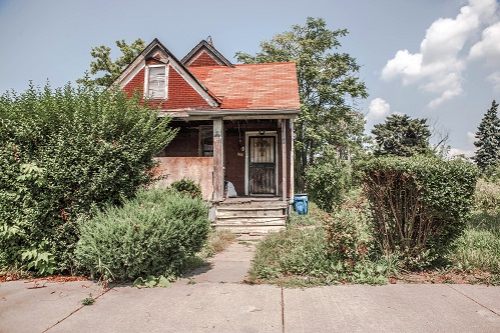- What type of fire damage does renters insurance cover?
- Types of fire insurance coverage for renters
- How much coverage does renters insurance provide for a fire?
- What type of fire damage isn't covered by renters insurance?
- Fire safety devices and renters insurance discounts
- How to make a fire damage claim on renters insurance
- FAQ: Renters insurance fire coverage
What type of fire damage does renters insurance cover?
Fire and smoke damage is typically covered by renters insurance.
Fires can easily start for several reasons -- a cooking mishap, an electrical appliance gone awry, an errant candle. Even if a fire doesn’t start in your home, your home could still be affected by smoke damage. Renters insurance helps if your personal belongings are destroyed or damaged.
Renters insurance generally covers:
- Fires started accidentally in your home
- Fire damage from outside your home
- Mandatory evacuations in your area
- Smoke damage
- Fires started by natural disasters
Renters insurance includes coverage for your personal belongings in a fire or related smoke damage. While the physical dwelling remains the responsibility of your landlord, your insurer will typically pick up the bill for personal items like:
- Clothing
- Furniture
- Electronics
- Appliances
- Computers
- Jewelry
- Art
- Pets
“Personal property items that are covered are everything that one owns, from the draperies all the way to personal care items, such as a toothbrush,” says Benjamin Bruinekool, principal of AAA/Western Michigan Insurance Agency.
Learn more about what renters insurance covers and how to buy.
Types of fire insurance coverage for renters
The standard renters insurance policy consists of different types, with each playing a different role. You will need to pay a deductible before your insurance coverage pays for a loss, with the average deductible around $500 or $1,000 for the average renters insurance policy.
Personal property
The personal property portion of your renters insurance coverage includes repairing and replacing your personal belongings, like clothes and electronics.
Liability coverage
Liability insurance protects you when you’re found at fault for a loss. For example, if you accidentally burn someone else or destroy someone’s belongings, this coverage would assume financial responsibility for any expenses covered under your policy. Liability protection can also apply if you are found negligent and responsible for reimbursement to your landlord.
“It safeguards you from the financial loss that you will be undergoing to compensate a third-party for physical or financial harm that might have befallen them as a result of your actions. If the third-party presses charges, the insurance company will cover you, according to [your] plan,” says Anthony Martin, CEO & founder of Choice Mutual.
Loss of use
A fire can cause severe damages to your home, making it inhabitable in many cases. Should you be unable to live in your home, loss of use coverage, also called additional living expenses or ALE coverage, will reimburse you for things like shelter and food. Most renters insurance policies will reimburse hotel stays, meals, and even increased commuter costs.
You can check the declarations page of your policy to see exactly what is covered and the limits for each.
How much coverage does renters insurance provide for a fire?
The coverage limit for fire damage on a renters policy depends on what you selected when you bought your policy. You'll be covered up to the personal property limit you chose. Valuables like jewelry and antiques may require additional coverage, as there are special limits on some high-value items.
To help you determine how much coverage you should carry, take an inventory of your belongings to determine appropriate coverage.
“I advise insureds to periodically walk around their home or apartment using a video camera and store the videos to the cloud,” says Bruinekool. “This way, if there is a loss, the video helps trigger a memory of what they had.”
The value of your belongings will help decide your renters insurance rates.
| Type of coverage | Ideal for... | Property coverage limits | Liability coverage limits |
|---|---|---|---|
| Minimum renters insurance coverage | Few belongings, cheap premiums | $10,000 - $20,000 | $100,000 |
| Mid-level renters insurance | Average coverage | $50,000 | $100,000+ |
| Premium renters insurance coverage | Expensive jewelry and valuables | $60,000+ | $300,000 |
Another factor that can impact your coverage limits is whether your policy includes actual cash value or replacement cost coverage. Actual cash value (ACV) can be a less-than-ideal situation for some belongings because it accounts for depreciation. Replacement cost covers the full value of the item’s replacement.
“When you set up your insurance, you agree to pay a deductible,” explains Jim Pendergast, senior vice president of altLINE, a division of Alabama’s Southern Bank Company. “In the case of a fire, the insurance company will pay for everything listed in your damages list except the deductible. So, if your $1,000 sofa goes up in flames and you have a $100 deductible, the insurance company would pay $900 to help you get a new sofa.”
However, there are limits that may apply. Before you finalize your policy, talk to your renters insurance company to see what coverage is most suitable for your belongings.
Find the best renters insurance companies for 2024.
What type of fire damage isn't covered by renters insurance?
While your renters insurance includes coverage for your personal belongings, the rental unit itself isn’t included.
This helpful chart breaks down tenant insurance for common items.
| Renters insurance | |
|---|---|
| Dwelling/structure | ✔ |
| Personal liability | ✔ |
| Personal belongings | ✔ |
| Loss of use | ✔ |
| Water damage | ✔ |
| Wind/hail | ✔ |
| Flood | May require an additional policy |
| Earthquake | May require an additional policy |
Your renters insurance doesn’t cover the physical rental unit. Instead, that is covered under landlord insurance, including coverage for things like the walls, flooring, and cabinetry.
Renters insurance also will not cover damage from a fire that you set intentionally, and only covers your personal property. Cars are not considered personal property. So, if the fire were to extend to the garage and damage your car, you'd need to file a claim with your car insurance company.
Fire safety devices and renters insurance discounts
You may qualify for discounts on your renters insurance if you (or your landlord) install some types of fire safety devices.
Some of the common devices that can earn you a discount include:
- Fire alarm
- Smoke detector
- Carbon monoxide alarm
- Sprinkler system
- Fire extinguisher
You could also lower premiums with other safety-related savings, such as discounts for deadbolts or a burglar alarm system. Ask your insurance company what discounts are available to help you save money on your policy.
How to make a fire damage claim on renters insurance
If a fire occurs in your home, there are several steps you need to take to receive reimbursement from your renters insurance company. Here's the process to file a claim.
- Immediately contact your insurance company: As soon as possible after the fire, contact your insurer to begin the claims process. The sooner you file, the sooner the insurance company can begin the process to issue a reimbursement.
- Complete a “proof of loss” form: This details the damages incurred from the fire. To expedite the process, be sure to include any photos or videos of damaged property.
- Include an official report: Provide a copy of the report from the police or fire department, if available.
- Provide a copy of your inventory: Your inventory should include reasonable estimates for value; receipts aren’t typically required.
- Share living arrangements: If you must leave your rental property due to fire or damages, contact your insurer immediately to find out about loss of use coverage limits.
- Schedule the adjuster: Your insurer may require that an adjuster visit the property to determine the extent of the damages.
- Wait for approval: After collecting all necessary information, your insurance company will review your claim to determine appropriate reimbursement.
- Receive payment: Once your claim is approved, your insurer will send you a check.
If you have questions or require assistance, customer support or your local agent can help.
FAQ: Renters insurance fire coverage
Does renters insurance cover smoke damage?
Yes. A renters insurance policy covers smoke damage from accidental fires.
Who pays when a neighbor’s fire spreads to your apartment?
Renters insurance reimburses fire and smoke damages, even if it did not start in your apartment. However, some exclusions may apply.
What precautions should you take to protect your home from fire?
To help avoid fires in the home, never leave burning candles unattended and always supervise cooking, turning off the oven and stove when you are finished cooking. It’s highly recommended to have a fire alarm, smoke detector, and fire extinguisher within the home in case of a fire.




